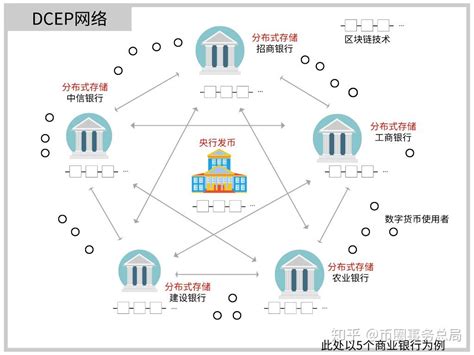比特币生态链最新消息
Title: Understanding the Bitcoin Ecosystem: A Comprehensive Overview
Bitcoin, since its inception in 2009, has grown from a niche concept to a global phenomenon, reshaping financial landscapes and challenging traditional notions of currency. The Bitcoin ecosystem comprises a myriad of elements, each playing a crucial role in its functioning, adoption, and evolution.
1. Bitcoin Protocol and Blockchain Technology
At the heart of the Bitcoin ecosystem lies its protocol and the revolutionary blockchain technology. The Bitcoin protocol, defined by the original whitepaper authored by Satoshi Nakamoto, establishes the rules governing the network. It enables secure peertopeer transactions without the need for intermediaries, using cryptographic techniques to ensure integrity and decentralization.
The blockchain, a decentralized and distributed ledger, serves as the foundation of the Bitcoin network. It records all transactions in a chronological and immutable manner, maintained by a network of nodes through a consensus mechanism called Proof of Work (PoW).
Guidance:
Understanding the fundamentals of the Bitcoin protocol and blockchain technology is essential for navigating the ecosystem effectively. Explore resources such as the original whitepaper, online courses, and reputable websites for comprehensive learning.2. Bitcoin Mining and Network Security
Bitcoin mining plays a pivotal role in securing the network and validating transactions. Miners compete to solve complex mathematical puzzles, with successful miners adding new blocks to the blockchain and receiving rewards in the form of newly minted bitcoins and transaction fees.
The mining process not only facilitates transaction verification but also ensures the immutability of the blockchain through computational power. However, it requires significant energy consumption, leading to discussions around its environmental impact and the quest for more sustainable consensus mechanisms.
Guidance:
For those interested in Bitcoin mining, conduct thorough research on hardware requirements, mining pools, and energyefficient practices. Stay updated on developments in consensus mechanisms, such as Proof of Stake (PoS), which aim to address environmental concerns.3. Bitcoin Wallets and Security Practices
Bitcoin wallets are digital tools that allow users to store, send, and receive bitcoins securely. They come in various forms, including software wallets, hardware wallets, and paper wallets, each offering different levels of convenience and security.
Security is paramount in the Bitcoin ecosystem, given its decentralized nature and irreversible transactions. Best practices include using hardware wallets for longterm storage, implementing multisignature authentication, and keeping private keys offline to prevent unauthorized access.
Guidance:
Prioritize security when managing bitcoins by utilizing reputable wallets and following industrystandard security practices. Stay vigilant against phishing attempts, malware, and social engineering tactics aimed at compromising your assets.4. Bitcoin Exchanges and Trading Platforms
Bitcoin exchanges serve as intermediaries for buying, selling, and trading bitcoins and other cryptocurrencies. They provide liquidity and price discovery, enabling users to exchange fiat currencies for bitcoins and vice versa, as well as trade between different digital assets.
However, the cryptocurrency market is known for its volatility and susceptibility to manipulation, highlighting the importance of due diligence and risk management. Additionally, regulatory compliance and transparency vary across exchanges, necessitating caution and research before engaging in trading activities.
Guidance:
Before using a Bitcoin exchange, research its reputation, security measures, and regulatory compliance. Consider factors such as trading fees, liquidity, and supported cryptocurrencies to choose a platform that aligns with your goals and preferences.5. Bitcoin Adoption and Regulatory Landscape
Bitcoin's adoption has expanded beyond individual users to encompass institutional investors, corporations, and even governments. While some view Bitcoin as a hedge against inflation and financial instability, others remain skeptical due to its perceived risks and regulatory uncertainties.
The regulatory landscape surrounding Bitcoin continues to evolve, with jurisdictions adopting varying approaches ranging from outright bans to embracing it as a legitimate asset class. Regulatory clarity is essential for fostering mainstream adoption and investor confidence in the long term.
Guidance:
Stay informed about regulatory developments and compliance requirements relevant to your jurisdiction when engaging with Bitcoin. Consider consulting legal and financial professionals for personalized advice on taxation, reporting obligations, and regulatory compliance.Conclusion
The Bitcoin ecosystem is a dynamic and multifaceted domain encompassing technology, economics, finance, and regulatory frameworks. By understanding its core components, adopting best practices, and staying informed about developments, individuals and businesses can navigate the Bitcoin landscape with confidence and harness its potential benefits while mitigating associated risks.

*Disclaimer: The information provided is for educational purposes only and should not be construed as financial or investment advice. Always conduct your own research and consult with qualified professionals before making any financial decisions.*
版权声明
本文仅代表作者观点,不代表百度立场。
本文系作者授权百度百家发表,未经许可,不得转载。
















评论